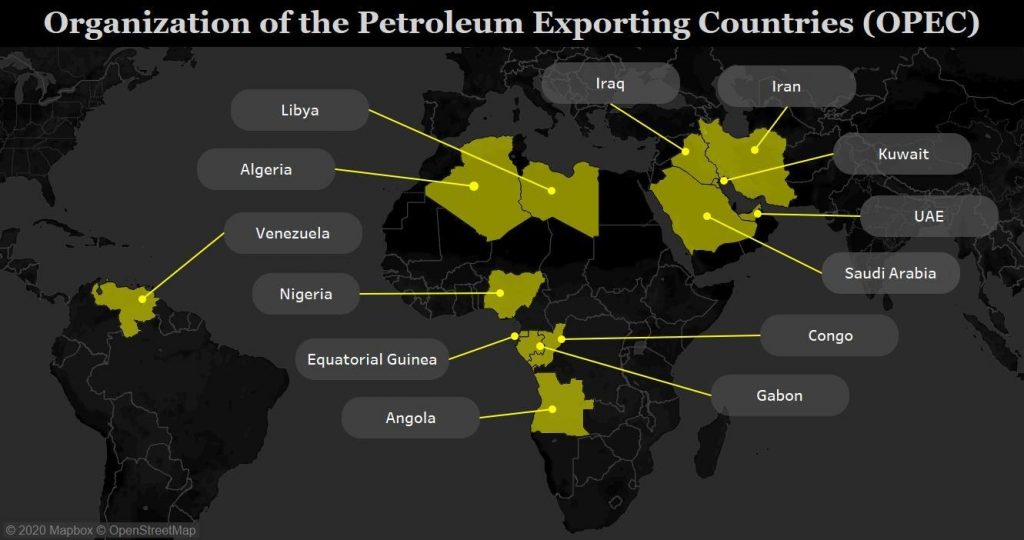OPEC & OPEC+
About OPEC arrangement
- The Organization of the Petroleum Exporting Countries (OPEC) is a group consisting of 13 of the world’s major oil-exporting nations.
- Countries that belong to OPEC include Iran, Iraq, Kuwait, Saudi Arabia, and Venezuela (the five founders), plus the United Arab Emirates, Libya, Algeria, Nigeria, Angola, Congo, Equatorial Guinea and Gabon.
- OPEC was founded in 1960 to coordinate the petroleum policies of its members and to provide member states with technical and economic aid.
- OPEC is used to work as a cartel and fix prices in a favourable band. It could bring down prices by increasing oil production and raise prices by cutting production.
OPEC Plus
- The 2014 oil crisis, which was accentuated by oversupply of crude, brought down prices below $30 a barrel. Since then, OPEC has been working with non-OPEC countries like Russia, Azerbaijan, Bahrain, Brunei, Kazakhstan, Malaysia, Mexico, Oman, Sudan and South Sudan to fix the global prices and supply.
- Known as the “OPEC Plus” arrangement, this alliance kept production lower and pumped up the prices.

Why in News?
- OPEC and its allies OPEC+ have recently agreed not to increase oil supply in April as they await a more substantial recovery in demand amid the COVID-19 pandemic.
- India, the world’s third-biggest oil importer, said the decision by major oil producers to continue with output cuts as prices move higher could threaten the consumption led-recovery in some countries.
- India imports about 84% of its oil and relies on West Asian supplies to meet over three-fifths of its demand.
Reference:
Subscribe
Login
0 Comments
